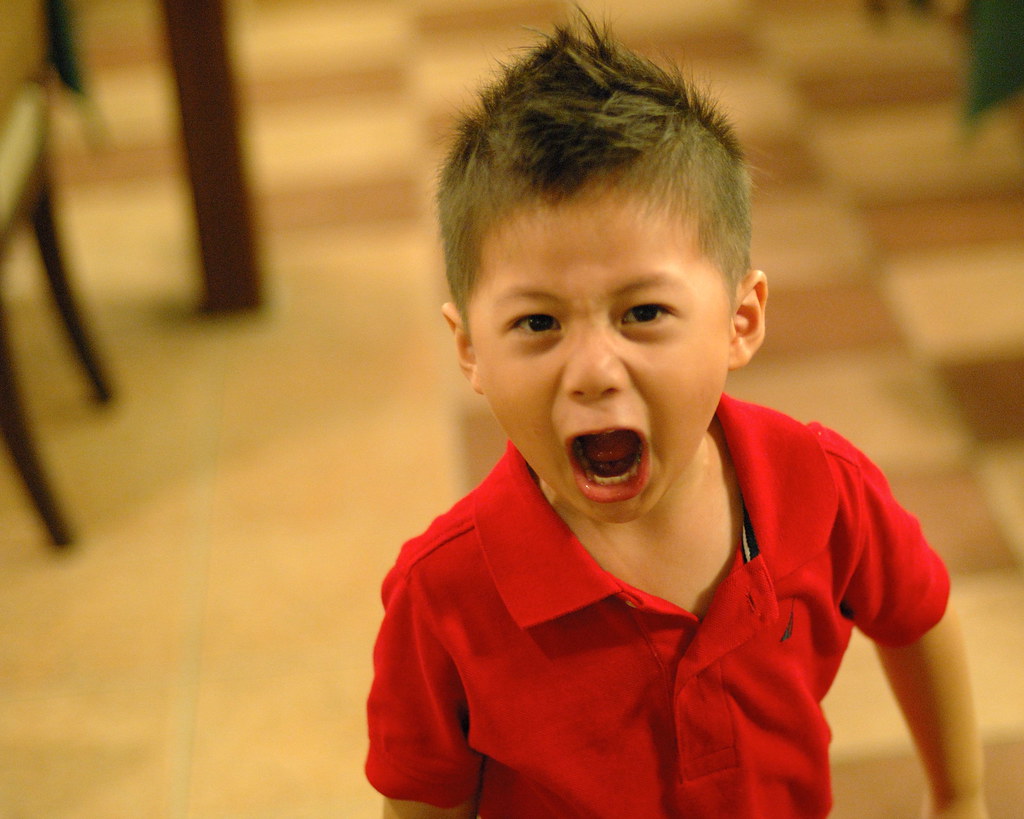IS YOUR CHILD AGRESSIVE - HOW TO CALM THEM DOWN

Aggressiveness is an emotion that is often misunderstood. Tantrums are defined as uncontrolled outburst of anger and frustration, typically in a young child.Tantrums in autistic kids are frequent. It can be a very overwhelming experience for both parents and kids. We need to always keep in mind that autistic kids are not like other kids in how they understand and react to situations. If we can realise how and why they react, then we can change our parenting approach. Both the kids and parents will immensely benefit in making their daily lives much more peaceful.
Tantrums in Autistic kids
Unlike a child with no developmental difficulties who interacts with his environment and communicate verbally and non verbally , a child with autism has limitations in communication which can result in frustration as he is not able to convey his feeling or needs properly. Some of the reasons that could trigger a tantrum are :
Reasons for Tantrums:
- Kids with autism likes everything to be predictable or they like to follow a routine. When situations become unpredictable, it can disturb them. for eg: There is a kid who goes to park every evening for playing. If on a day, his parents decide to take him along with them for shopping. How will the child react?. His mind may be always thinking about park and would not like his trip to shopping much. There is a great possibility that he may show his resentment in the form of tantrum. Thats the reason we are advised to inform the kids about his scheduled activities to remove the element of surprise or unpredictability in his life.
- Loud sounds, some places can be disturbing and intimidating to them. For eg: Some kids cant withstand the sound of a drill or may find dark room with flashing lights very scary.They may be unable to communicate their feelings.
- They may find some tasks very difficult . It can be a kid trying to gather popcorn that fell on the floor or he may find sitting for his homework very taxing. These situations may become very frustrating for the kid and he may break into a tantrum as he may not to able to even say that "I need a break" or " I need help".
- We all learn the norms and practices in society by observing how people around us interact. We tend to follow what others do. Like sitting quiet in the place of worship or standing in queue. However kids with autism don't learn these norms themselves. Hence they are oblivious to the behaviour expected of them.
- Many of the kids with autism don't understand often used terms like "what" "why","when","that", "this","he" etc, which are essential to articulate themselves. When they are short of words they take the easy route to grab attention in the language they know, that is by howling,screaming or rolling on the floor.
How Parents feel:
The tantrums in public places are embarassing for parents but for the child, only his world exists and the surroundings does not have any bearing on his behaviour. So if your child has tantrum in a movie theatre, just understand that for him at that moment movie theatre do not matter nor does he know that he is causing inconvenience to other movie goers.The tantrums in public places are nightmarish experiences for parents because it can make you feel helpless and confused and you need a lot of physical and mental strength. Its like trying to hold a charging bull. While physically you can stop them for a moment or manage the situation, how can parents effectively counter the tantrums. How can parents confidently tackle it?
How we can tackle tantrums in kids with Autism
All we need to tackle the tantrums are observation, perseverance and determination. It is easier said than done! We know that the thinking , communication, cognitive abilities of the kids are different when compared to kids without autism. So, first we need to avoid bench-marking them with other kids. Each kid with autism is different and unique with their talents and and shortcomings. But we can avoid tantrums to an extent by carefully creating favourable environment for the kids. Here are the steps:
Steps:
Step 1- Observe the child to understand his routine. Understand all his daily activities . Within couple of days you will find that he or she follows a routine in doing activities. The way they carry out activities like playing, or eating are done in the same way every day. If anything is changed a little bit, they may express their resentment. Also look what is his attitude towards each activity. The child may be excited with some activities and disinterested with others. He may carry out some activities like a normal child. Note down the situations that excite him or make him happy and and the ones that make him upset or disinterested.
Step 2 - Note the bad moments and see what exactly made it a bad moment. There may be a particular reason why a child hates an activity and throws a tantrum. It may be due to a person, thing, a phobia, sound or smell, effort required .We need to find out the exact reason.
Step 3 - Once we have identified the causes , we can look into how to modify them or change it completely so as to make it interesting and to avoid resistance from the child. Some activities may require minor modifications whereas others may require more effort from your side.
Step 4 - Now see how the child behaves after modifying the activities that earlier upset him or triggered the tantrum. This also would have given you valuable information on your child's likes and dislikes and will help you to control his tantrums. By reducing activities that he dislikes and increasing the ones that he likes. Lets see how we can use this valuable information.
How to use the valuable information:
Preempting the tantrum- A child who will insist for chocolates which is restricted as per the diet will throw tantrums if he is taken to a supermarket and given chance to see the array of chocolates . Either he will make tantrum or you will be forced to buy it which is not a good option as chocolates are known to make them aggressive and hyper. The best option would be to avoid shops or places where chocolates are kept in a tempting fashion i.e. avoid the trigger.Avoid the places,people,food,sound,activity that can trigger tantrum.
Intervention just before an episode- Since you know your child well, you can read from his expressions when he is agitated and going into a tantrum. He may make specific sounds, actions. There is a small window of opportunity where you can control him, if you do the right thing.What will work varies for each child but the key factor is dont bother about surroundings or people. You need to concentrate on it and focus only on averting the tantrum. For eg: If a child cannot stand 'noise of a drill and while you shop, if there is a sudden noise of drill what would you do. Will you 'try to speed up the shopping and hope that your child don't take notice of it' as you are not comfortable explaining the child's condition to the shopkeeper or 'rather ask shopkeeper to shut it down till you exit the shop'. As you know very well that the sound of drill can trigger your child, you need to avert the trigger immediately.
Intervention during an episode- If the episode of tantrum happens at home, you have the option of letting the child vent his frustration as the child may cool down soon. But if its in a public place, you may need to assess the environment and probably make a quick exit or divert his attention to a thing he likes.(Its a good idea to carry couple of things that your child loves with you to be used in such situations). Again what works varies with each child.

There are other techniques to calm your kid like gentle massage, giving a tight hug, teaching the kid to signal to you that he needs help or he is not interested.Also medicines for hyperactivity and aggression can be given if its found to be effective for the child. This will hep the child to be more composed and focus on other activities.
It may not be possible to avoid tantrums but definitely we can reduce it and make their life better by creating a friendly environment and help them to control frustration.
